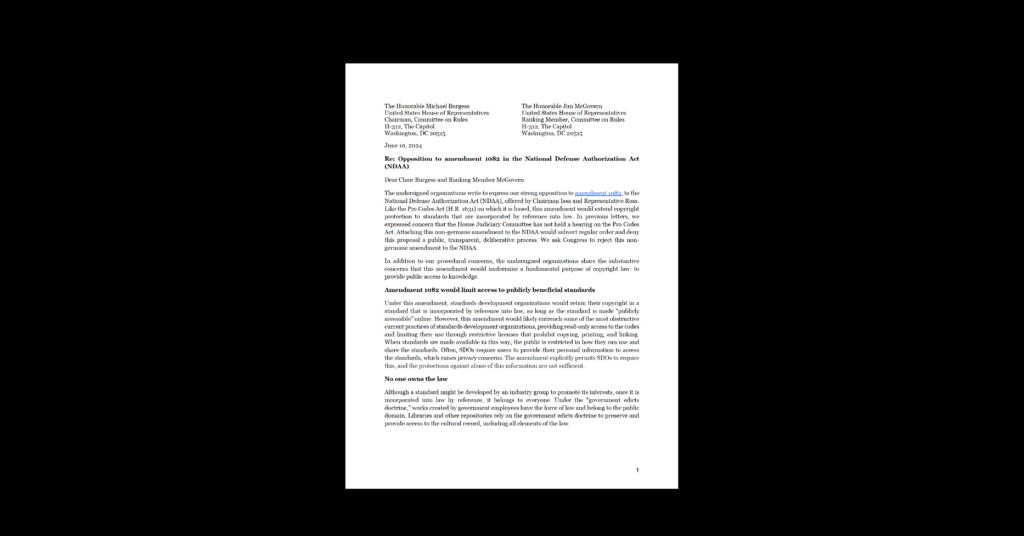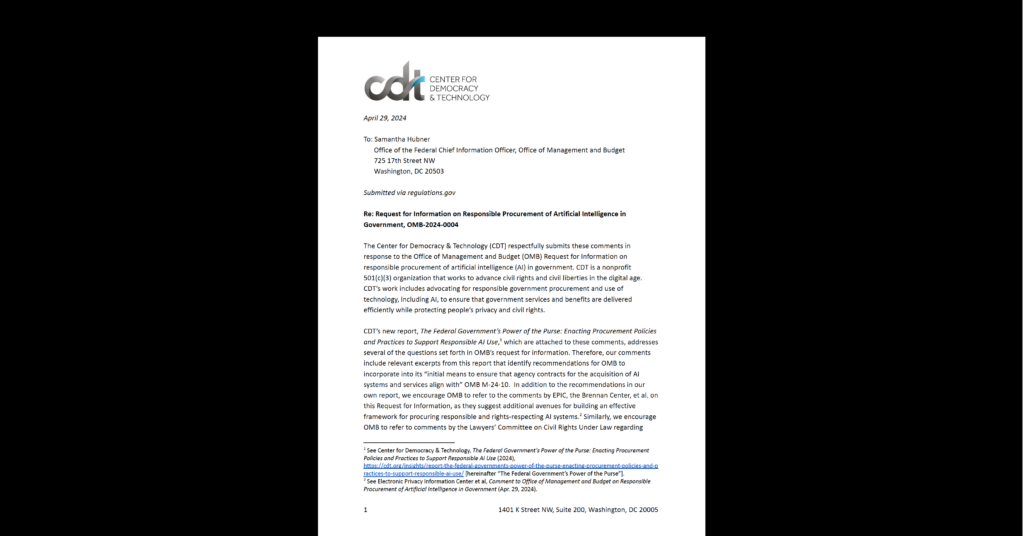Google Settles Lawsuit with Book Publishers and Authors
Google, the Authors Guild, and the Association of American Publishers announced a tentative settlement yesterday in the class action lawsuit over Google’s efforts to create a search engine for books. It’s a long settlement and there is plenty to read through and analyze. But on first blush, it appears that there is a lot to be enthusiastic about from a public-interest standpoint.
The public will get broader online access to books, including not just search capability, but also more substantial excerpts to browse and the option to purchase full text. Libraries and universities will be able to offer full text electronic access to patrons and students. And book authors and publishers should enjoy new revenue opportunities in connection with new ways for readers to find and access their work. A new entity called the Book Rights Registry will collect and distribute the revenues. A great deal of this is not possible today, and would not have been possible even if Google had litigated this case to the end and won an outright victory. Of course, forestalling an actual legal decision also means that the fair use questions at the heart of the lawsuits won’t get resolved. Details regarding the settlement can be found at the author’s guild Web site and that of Google Book Search.
In broad strokes, the lawsuit was about whether the inclusion of books in Google’s search database should be subject to opt-in or opt-out choice on the part of rights holders. Authors and publishers argued that Google needed to get affirmative permission from the individual copyright holders before including each book in the database. Google said that was so cumbersome it would sink the project. It wanted to include books unless and until the relevant copyright holders asked for them to be excluded.
Under the settlement announced yesterday, there’s a sort of compromise. The settlement draws a line between out-of-print books (books for which new copies are no longer being printed and sold) and books that are still in print. For out-of-print books — which would constitute the vast majority of books in any library today — Google can continue to index, search, and display excerpts of books until and unless the copyright holder comes forward to opt out. In addition, Google will expand the amount of each out-of-print book that can be displayed in connection with search results, so that users can browse through longer excerpts than the brief “snippet” that the current Book Search tool provides. For still-in-print books, Google will take more of an opt-in model; it will allow search users to view excerpts of only those books that rights holders have affirmatively asked Google to include. In the absence of such a request, the “snippet view” that Google’s current Book Search provides would be disabled.
But there is every reason to believe that the revenue opportunities offered under the settlement will create a strong incentive for authors and publishers to opt in: Google will send rights holders 63 percent of revenues from ads displayed alongside book excerpts, revenues from selling full text book access to individual readers, and revenues from subscription access purchased by institutions like universities. If everything works out, authors and publishers will jump at the opportunity, and Google should be in a position to offer Internet users access to an exceedingly broad range of both out-of-print and in-print books. This would be a great resource for researchers and a very positive development for book users, writers, and publishers of all stripes.
Any Downside Here?
If there’s a downside here, it is that the path Google has pursued here will not be easy for others to follow. Google’s scanning and display of excerpts of out-of-print books will rely not on fair use, but rather on what amounts to a broadly binding license derived from the class action settlement. The settlement states clearly that authors and publishers are free to strike deals with other companies that may want to offer some kind of search tool or online access capability for their books. But any new would-be new entrant in this market would either have to seek out its own set of licenses with a vast number of authors and publishers, or proceed based on fair use and expose itself to the same kind of lawsuit that Google faced.
Because Google did not litigate the fair use question through to the end, it didn’t blaze a fair use trail that others could follow. Naturally, that’s just fine with the publishing industry, which rejects the idea that what Google was doing could have qualified as fair use. But it creates a considerable challenge for anyone eyeing the creation of some type of new indexing, search, or analogous service.
Indeed, there is an argument that the settlement actually may increase the legal danger of relying on fair use in this kind of context. One of the key factors in any fair use determination is what impact the use in question may have on the rights holder’s potential market. With this settlement, the parties aim to create a market in which book searching generates various types of revenues. That is not a bad thing. But it could make it harder for a newcomer to argue that a feature or service that delivers similar functionality would not affect the rights holder’s opportunities for commercially exploiting their works.
Questions regarding the settlement’s impact on potential future competitors to Google are at least partly counterbalanced by the creation of a new Book Rights Registry, a non-profit which will be established with $34.5 million from Google. The Registry will be run on behalf of authors and publishers and will be charged with distributing revenues generated by Book Search to the appropriate rights holders. If authors and publishers want it to, the Registry also could come to serve as a central clearinghouse that could help consolidate and organize rights holder permissions for future services aimed at providing or improving access and use of books — including possible competitors to Google, entities with entirely different business models, or more specialized niche services.
Still, it remains to be seen if or how successfully the Registry will play this kind of role. Also, the class action settlement effectively will give Google a license with the broad class of authors and publishers (assuming that few choose to opt out of the settlement), an advantage newcomers won’t have. It is worth keeping an eye on the longer term legal and competition implications of yesterday’s settlement.
But it is also clear that settlement should deliver some very tangible benefits in the near term. In a world where people seeking information increasingly turn to the Internet and the Web, books need to be readily accessible online. If they are not, they will grow increasingly invisible, to the detriment of both researchers and book authors. Yesterday’s settlement appears to offer an excellent example of how copyright and technology interests can work together to create new business models and exciting opportunities and capabilities for Internet users.
CDT Policy Analyst Andrew McDiarmid contributed to this article.


